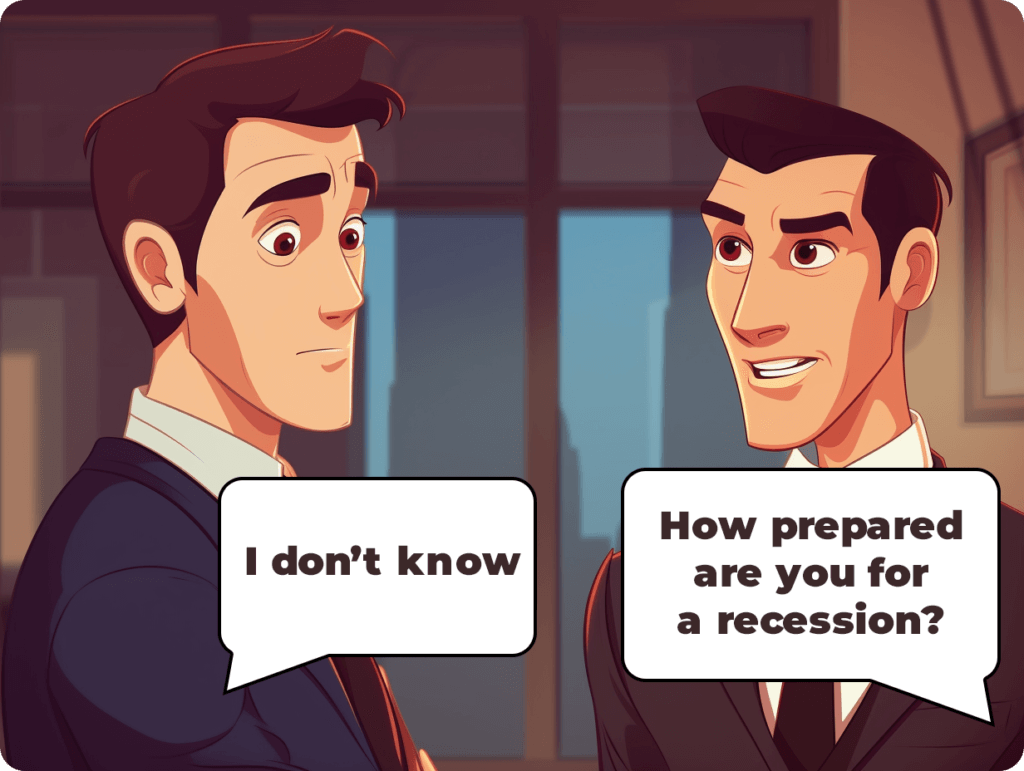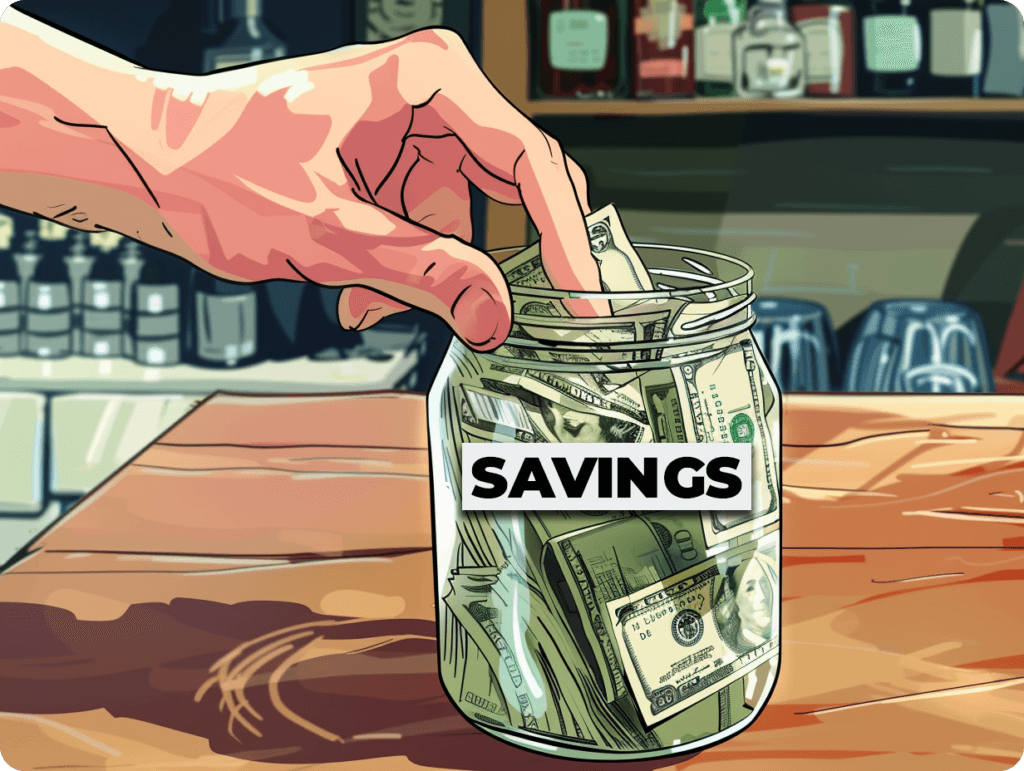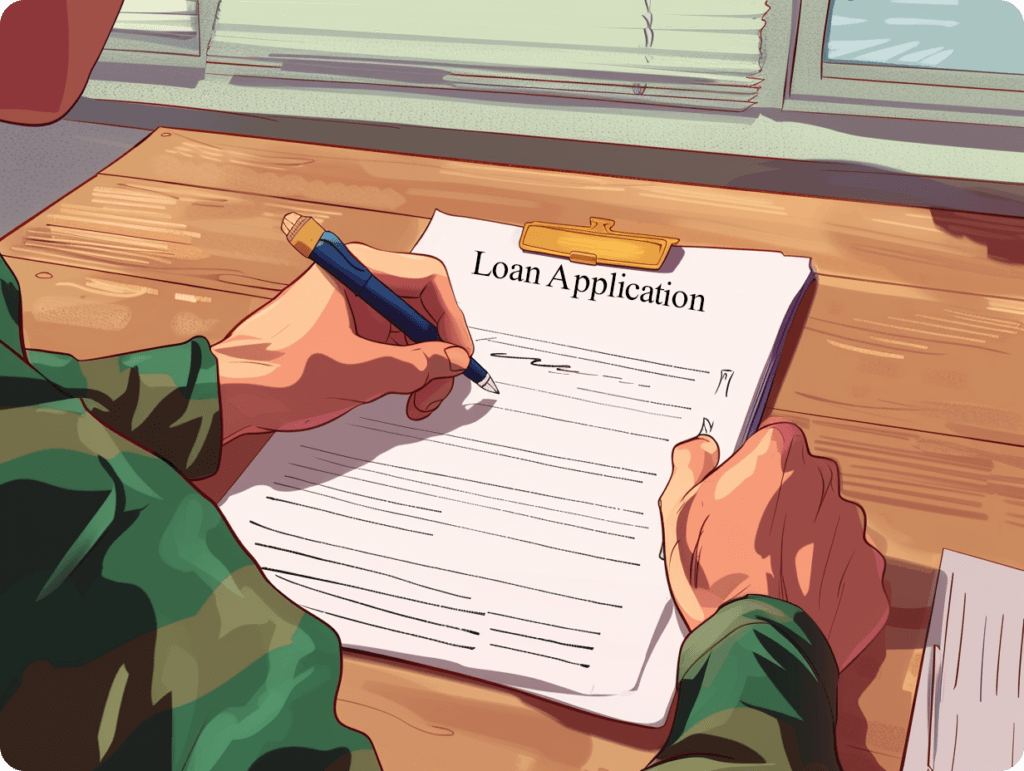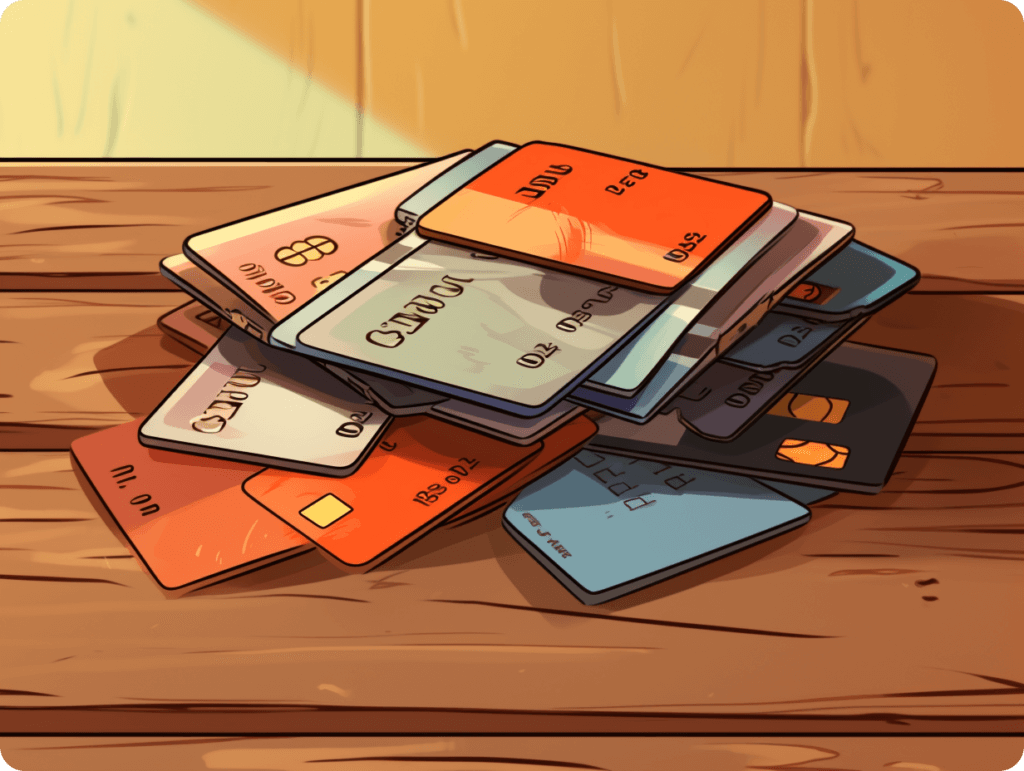- Blogs
- /
- What is the downside of filing for bankruptcy?
What is the downside of filing for bankruptcy?

Summary
Filing for bankruptcy could seem like the perfect solution for a comeback. This is because it provides temporary relief from creditors. It also protects certain assets. But it has drawbacks. This legal process can affect your financial and personal life. It’s used to address overwhelming debt.
It is crucial to understand the downside of bankruptcy before making any decisions. It should only be a last resort if you consider filing for bankruptcy. Do this in dire circumstances.
It’s essential to navigate this complex process with the help of a professional team. You could also seek information from reliable sources. Understanding the potential downsides of bankruptcy will help you make an informed decision. You can decide if it is the right course of action for your specific situation.
Key Takeaways
- Bankruptcy Discharge can cut or reduce specific debts, but not all are dischargeable.
- Filing for bankruptcy initiates an automatic stay, halting creditor collection actions.
- An automatic stay temporarily stops foreclosure, repossession, and wage garnishment. But, it doesn’t prevent specific legal actions like child support obligations.
- Creditors can request relief from the automatic stay under specific circumstances.
- Advantages include debt write-offs, foreclosure prevention, and a fresh financial start.
- Disadvantages encompass potential asset loss, long-term credit impact, and ongoing legal/financial responsibilities.
- When you file for bankruptcy, you must undergo mandatory credit counseling. This educates individuals about financial management.
- Careful assessment of the financial situation and exploring alternatives before bankruptcy is crucial.
- You should consult a bankruptcy attorney for tailored guidance.
Understanding Bankruptcy Basics

There are several essential aspects to understand. Let’s dive into bankruptcy basics and explore what happens when you file. We will also talk about the effects of an automatic stay and the concept of bankruptcy discharge.
What Happens When You File
Filing for bankruptcy initiates an automatic stay. This is a legal protection that halts collection actions by creditors. It means that creditors must stop their efforts to collect debts from you once you file. The automatic stay can provide much-needed relief. It gives you some breathing room to assess your financial situation.
You are appointed a trustee to oversee your case during the bankruptcy process. The trustee’s role is to review your financial information. They also manage the distribution of assets and ensure compliance with bankruptcy laws. You must provide detailed financial information as part of the filing process. It’s important to note.
Besides providing financial information, attend mandatory credit counseling sessions when filing for bankruptcy. These sessions aim to educate individuals about personal financial management. It also helps them develop strategies for avoiding future financial difficulties.
Bankruptcy filings are public records. Anyone who searches for them can access them. This might seem concerning at first. But it’s important not to let it stop you. Seek relief through bankruptcy if it’s necessary for your situation. Remember that many people go through similar challenges. Understanding this can help reduce any stigma associated with filing for bankruptcy.
Automatic Stay and Its Effects
The automatic stay can significantly affect various aspects of your financial life. One notable effect is that it temporarily stops foreclosure proceedings. It does so if you risk losing your home. This can provide valuable time to explore alternatives. Or, you can devise a plan with your mortgage lender.
The automatic stay can also halt a vehicle’s or other property’s repossession. This is due to unpaid loans or debts. Similarly, it can stop other actions like foreclosures or evictions. It can allow you to negotiate with the creditor or explore options for keeping your property.
The automatic stay pauses wage garnishment. A creditor deducts money from your paycheck to meet a debt. This can provide some relief. It allows you to focus on managing your finances during bankruptcy.
Yet, it’s important to note that the automatic stay does not prevent all types of legal actions. For example, it does not stop criminal proceedings. It also does not stop obligations, such as child support payments. It’s essential to understand the limitations of the automatic stay. Consult with an attorney if you have specific concerns. Ask them how it may impact your situation.
Creditors do have the ability to request relief from the automatic stay under certain circumstances. If they can show that lifting the automatic stay would be in the best interest of their claim, a court may grant their request. But, violating the automatic stay without court approval can penalize the creditor.
The Bankruptcy Discharge Explained
One of the primary goals of filing for bankruptcy is obtaining a discharge. A discharge is a court order that eliminates your legal obligation to repay certain debts. It wipes out certain debts, giving individuals a fresh start. It also helps them move forward financially.
It’s important to note that not all debts are dischargeable through bankruptcy. Debts such as student loans, child support obligations, and most tax liabilities generally cannot be discharged. But, exceptions depend on the type of bankruptcy filed and individual circumstances.
Obtaining a discharge can take several months after filing for bankruptcy. The exact timeline can vary based on case complexity and court schedules. During this time, it’s crucial to continue working with your attorney. Fulfill any requirements set forth by the court.
Bankruptcy discharge eliminates your obligation to repay discharged debts. Yet, it doesn’t remove any liens placed on your property by secured creditors. If you have a mortgage or car loan, the creditor can still repossess the property if you do not make payments.
Weighing Bankruptcy Pros and Cons
Advantages of Filing for Bankruptcy
Filing for bankruptcy can offer several advantages for individuals facing overwhelming debt. Here are some key benefits to consider:
1. Complete Debt Write-Offs
Filing for bankruptcy has a significant advantage. It can end or reduce some types of debts. Unsecured debts, such as credit card balances and medical bills, can be discharged entirely in bankruptcy. This means that you may no longer be responsible for repaying these debts.
It’s important to note that secured debts need you to reaffirm them or surrender collateral to keep the property. For example, if you have a car loan or mortgage, you may need to continue making payments or give up the vehicle or home.
Some debts incurred shortly before filing for bankruptcy may be deemed non-dischargeable. These include recent luxury purchases or cash advances.
2. Preventing Foreclosure or Repossession
Filing for bankruptcy can provide temporary relief. If you’re facing foreclosure on your home due to missed payments. It can also help when facing repossession of your car or property. When you file for bankruptcy, an automatic stay goes into effect. This halts any collection actions against you.
This automatic stay can temporarily stop foreclosure proceedings. It can give you time to catch up on missed mortgage payments. Chapter 13 bankruptcy establishes a repayment plan. It will help you catch up on missed mortgage or car loan payments over time.
However, it’s essential to understand that filing for bankruptcy does not guarantee the prevention of foreclosure or repossession in the long term. You may still lose the property even with a repayment plan if you can’t afford the mortgage or car loan payments.
3. Fresh Start After Discharge
Filing for bankruptcy also offers a chance for a fresh financial start. By eliminating or reducing your debts, bankruptcy can help you regain control of your finances. It can also help you establish healthier financial habits.
After bankruptcy, you can begin rebuilding your credit. Bankruptcy can make it challenging to obtain new credit right after discharge. It impacts your credit score. However, responsible financial management and patience are vital to rebuilding your credit.
It’s important to note that bankruptcy will remain on your credit report for several years. This can affect your ability to secure loans or qualify for favorable interest rates. Some lenders may view bankruptcy as a red flag when considering loan applications.
Disadvantages of Filing for Bankruptcy
Filing for bankruptcy can offer relief from overwhelming debt. However, there are also some downsides to consider. Here are a few disadvantages:
1. Potential Loss of Assets
The type of bankruptcy filed determines whether you must surrender certain assets. This is part of the process. In Chapter 7 bankruptcy, non-exempt assets are liquidated to meet debts. However, exemptions allow you to protect essential assets such as your home or car.
In Chapter 13 bankruptcy, you can keep your assets. But, you must adhere to a repayment plan based on your disposable income. Understanding these exemptions and limitations is crucial to protecting essential assets.
2. Long-Term Credit Impact
A major disadvantage of filing for bankruptcy is its long-term impact on your credit. Bankruptcy will remain on your credit report for several years. This can negatively affect your credit score.
As a result, it may become more challenging to obtain new credit after filing for bankruptcy. It also makes securing loans or qualifying for favorable interest rates harder. Rebuilding credit post-bankruptcy requires consistent effort. It also needs responsible financial management over an extended period.
3. Legal and Financial Responsibilities
Filing for bankruptcy involves various legal and financial responsibilities. You must fulfill them throughout the process. This includes accurately disclosing all financial information and cooperating with the bankruptcy trustee.
Failure to fulfill these can result in the dismissal of your bankruptcy case. Remember, bankruptcy does not free you from duties like child support or alimony payments. You must still fulfill these responsibilities even after filing for bankruptcy.
Focusing on the Downside
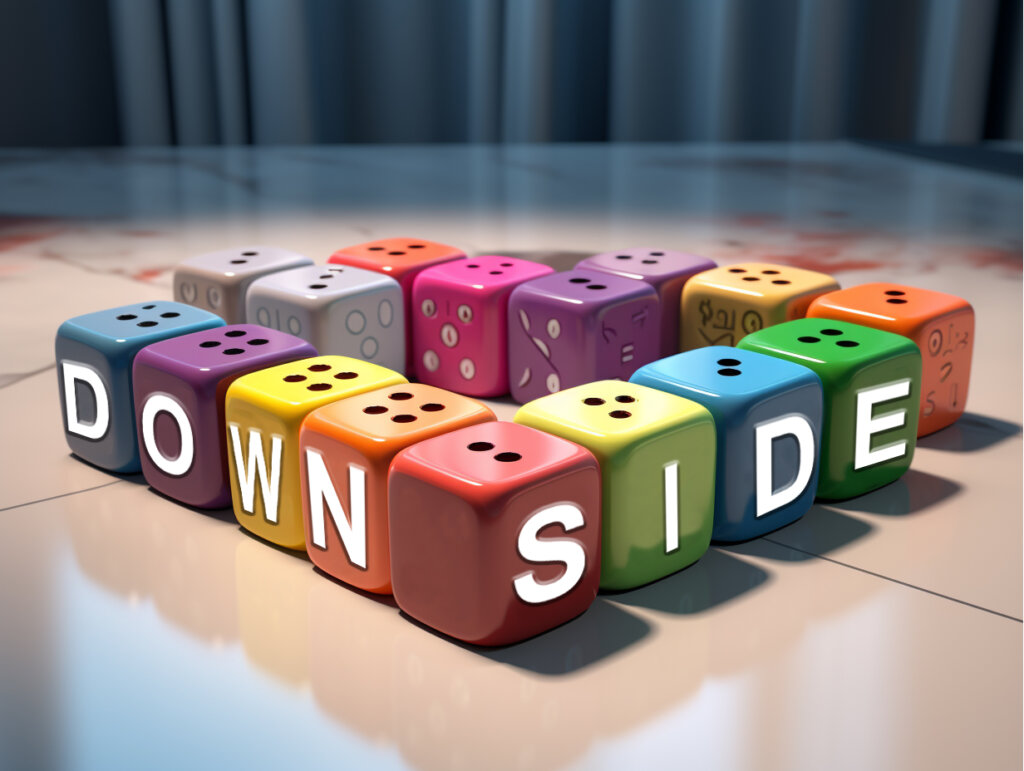
1. Impact on Credit Score
Filing for bankruptcy can have a significant impact on your credit score. The exact effect will vary depending on your previous credit history. The type of bankruptcy filed will also influence this. Yet, note that bankruptcy generally results in a lower credit score.
Rebuilding your credit after bankruptcy will require a consistent payment history. Responsible financial management will also help. It may take a while, but over time, the negative impact of bankruptcy on your credit score will diminish.
2. Loss of Business and Assets
One major downside of filing for bankruptcy is the potential loss of business and assets. Businesses could sometimes be closed down due to financial difficulties. Chapter 7 bankruptcy, in particular, could require liquidating business assets to repay creditors.
This can be challenging for entrepreneurs. Bankruptcy makes it difficult to get financing. Individuals who own businesses and are considering bankruptcy must understand its implications for their operations. This is crucial.
3. Increased Expenses and Insurance Premiums
Another downside of bankruptcy filing is the potential increase in expenses and insurance premiums. Individuals who have filed for bankruptcy may face higher insurance premiums. This is due to the perceived risk of their financial situation.
Finding affordable auto or homeowner’s insurance can become more challenging after bankruptcy. Some landlords may need higher security deposits or charge higher rent if you have a bankruptcy record.
Consequences on Personal Life
1. Challenges in Renting and Employment
Filing for bankruptcy can significantly affect various aspects of your personal life. When you have a bankruptcy on your record, it becomes hard to find suitable housing. This is because landlords may be hesitant to rent to individuals with a history of financial instability. This can make securing a new place to live more challenging and time-consuming.
Similarly, certain employers may consider an individual’s bankruptcy history during the hiring process. Not all employers view bankruptcy negatively. Some may see it as a sign of financial irresponsibility or instability. This can affect job prospects, especially in roles that handle finances. And even in roles or positions requiring high trust.
A bankruptcy filing could impact professional licenses or certifications. This is in addition to renting and employment challenges. Some licensing boards may consider an individual’s financial history when determining eligibility for obtaining or renewing licenses. The decision depends on the industry and state regulations. Understanding how bankruptcy affects your renting and employment is crucial for your situation.
2. Public Disclosure and Privacy Concerns
A crucial aspect to consider before filing for bankruptcy is the potential loss of privacy. Bankruptcy filings are public records accessible by anyone who searches for them. This means your personal and financial information becomes part of the public record when you file for bankruptcy.
The public nature of bankruptcy filings can negatively impact your privacy. This is because anyone can access details about your financial situation. This loss of privacy may make some individuals uncomfortable or feel exposed. This is especially true if they value keeping their financial matters private.
You need to weigh the potential consequences on privacy before filing for bankruptcy. Consider that your personal and financial information will become publicly available. This should factor into your decision-making process.
3. Future Credit and Loan Difficulties
Filing for bankruptcy has another significant downside. It can impact your future credit and loan prospects. Filing for bankruptcy can make it challenging to get new credit or loans in the future.
Lenders often view individuals who have filed for bankruptcy as high-risk borrowers. This perception may result in limited options for getting credit cards, mortgages, or car loans after bankruptcy. Even if you can secure a loan, the terms and interest rates may be unfavorable. This is due to the increased risk associated with your financial history.
Rebuilding your credit is crucial after bankruptcy. Demonstrating responsible financial behavior is also crucial for improving your loan prospects. It takes time and effort to rebuild your credit score and regain the trust of lenders. This may involve establishing a record of timely payments. It may also involve keeping debt levels low and practicing good financial habits.
Addressing Specific Financial Issues

1. Handling Back Taxes in Bankruptcy
Dealing with back taxes can be daunting, but bankruptcy could offer relief. Certain tax debts are dischargeable in bankruptcy. This depends on factors such as the type of tax owed and its age. But it’s important to note that recent income tax debts are generally not dischargeable.
Chapter 13 bankruptcy could provide a solution if you face significant tax debts. This form of bankruptcy allows a repayment plan to address tax debts over time. You can work with a tax professional or bankruptcy attorney to help handle back taxes. They can help you determine your financial situation’s best course of action.
2. Settling Debts for Less
One potential upside of filing for bankruptcy is settling your debts for less than the total amount owed. Some or all your debts may be discharged or reduced through bankruptcy proceedings. Meaning you could pay only a part of what you initially owed.
Alternatively, negotiating with creditors outside of bankruptcy may lead to debt settlement arrangements. In these cases, you would negotiate with each creditor to agree on reducing the debt amount. This might involve making a lump-sum payment or agreeing to a reduced payment plan.
When considering options between debt settlement and bankruptcy, weigh the pros and cons. Each approach has its implications and consequences for your financial future. Consult with a financial advisor or bankruptcy attorney. They can help you understand which option best fits your circumstances.
3. Exemptions and Limitations
Bankruptcy exemptions are crucial in determining which assets you can keep during bankruptcy. These exemptions vary depending on state and federal laws. They allow individuals to protect specific property from being liquidated.
Understanding exemption laws and limitations is vital when filing for bankruptcy. It ensures that your essential assets are safeguarded. This includes your home, car, and personal belongings. Consult with a bankruptcy attorney. They can help determine the exemptions that apply to your situation. They will guide you in protecting what matters most.
Considering Alternatives to Bankruptcy
1. Debt Settlement and Management Plans
If you’re facing overwhelming debt and thinking about bankruptcy, you should explore other options before deciding. Two common alternatives are debt settlement plans and debt management plans.
Debt settlement plans involve negotiating with creditors to reduce the total amount owed. Individuals can lower their outstanding balances by working with a reputable debt settlement company. They can also deal directly with creditors. This can provide some relief by reducing the overall financial burden.
Credit counseling agencies often facilitate debt management plans. They help individuals repay debts through structured payment arrangements. These agencies work with creditors to establish more manageable payment plans. The plans are based on your financial situation. They also guide budgeting. They offer financial education to help you better manage your finances.
It’s important to note that debt settlement and management plans can impact credit scores. Negotiating settlements or participating in a debt management plan could appear on your credit report. Yet, these options may have less severe consequences for your creditworthiness than bankruptcy.
Before committing to any of these alternatives, it’s crucial to understand the potential consequences and benefits they may bring. Before seeking help, research accredited and reputable companies. Look for credit counseling agencies offering these services.
2. Negotiating with Creditors Directly
Consider bankruptcy a last resort when all other options have been exhausted. One alternative worth exploring is negotiating directly with creditors before filing for bankruptcy.
Contact your creditors and explain your financial difficulties. This could help you negotiate more favorable terms. This could include reduced interest rates. It could also have extended repayment terms or even lowered the balance owed. Successful negotiations can help you avoid the negative consequences associated with bankruptcy.
But it’s crucial to recognize that not all creditors may be willing to negotiate or provide help. The outcome of negotiations will depend on your financial circumstances. It will also depend on the creditor’s willingness to work with you.
When negotiating, you must understand your financial situation. Be prepared to give evidence of your hardship.
3. Seeking Non-Profit Credit Counseling
Another option to consider before filing for bankruptcy is seeking help from non-profit credit counseling agencies. These organizations offer financial education and guidance in managing debt.
Non-profit credit counseling agencies can help you develop a budget. They can also help you create a plan for repaying your debts. They may also negotiate with creditors on your behalf. They aim to establish more manageable payment plans. This can ease the stress of overwhelming debt. It can help you regain control over your financial situation.
When seeking non-profit credit counseling services, it’s crucial to research reputable agencies. Look for a proven track record of helping individuals manage their debts successfully. Look for accredited agencies. They should be accredited by recognized organizations like the National Foundation for Credit Counseling (NFCC) or the Financial Counseling Association of America (FCAA).
Chapter 7 Bankruptcy In-Depth
Understanding Chapter 7 Advantages
Chapter 7 bankruptcy can be a helpful option for individuals facing overwhelming debt. It offers several advantages that can provide financial relief and a fresh start. Let’s take a closer look at these advantages:
1. Quick Discharge of Debts: One of the significant benefits of Chapter 7 bankruptcy is the relatively fast discharge of eligible debts. In most cases, the process takes just a few months, allowing individuals to move forward without the burden of unmanageable debt.
2. Elimination of Unsecured Debts: Chapter 7 bankruptcy eliminates unsecured debts, such as credit card bills and medical expenses, without requiring a repayment plan. This means these debts are no longer legally enforceable once the bankruptcy case is completed.
3. No Minimum Income Requirement: Unlike other forms of bankruptcy, Chapter 7 does not need the minimum income or disposable income level to qualify. This makes it accessible to individuals with lower incomes. They are struggling to meet their financial obligations.
Recognizing Chapter 7 Downsides
Chapter 7 bankruptcy offers significant advantages. But, it’s crucial to understand its potential downsides before deciding. Here are some key points to consider:
1. Liquidation of Non-Exempt Assets: In a Chapter 7 bankruptcy case, non-exempt assets may need to be liquidated (sold) to repay creditors. Non-exempt assets typically include luxury items or valuable property. They are beyond necessities for daily living expenses.
2. Certain Debts Not Dischargeable: While many types of debts can be discharged through Chapter 7 bankruptcy, there are some exceptions. For example, student loans and recent tax obligations are not usually covered under Chapter 7.
It’s essential to be aware of these limitations when evaluating the potential benefits of filing for bankruptcy.
3. Income Limitations: Individuals with higher incomes may not qualify for Chapter 7 bankruptcy and may need to consider alternative options, such as Chapter 13 bankruptcy. The specific income limits vary based on household size and location. So, it’s essential to consult with a bankruptcy attorney to determine eligibility.
Chapter 13 Bankruptcy In-Depth
Understanding Chapter 13 Advantages
Chapter 13 bankruptcy offers a structured repayment plan. It presents several advantages for individuals seeking to manage debt without liquidating assets. Exploring these benefits sheds light on its potential:
- Debt Repayment Plan: Chapter 13 involves creating a court-approved repayment plan spanning three to five years. This plan allows individuals to repay past-due amounts gradually while maintaining current payments on secured debts.
- Asset Retention: Unlike Chapter 7, Chapter 13 generally doesn’t cause the liquidation of assets. Debtors can keep their property while repaying creditors. They follow a manageable schedule outlined in the repayment plan.
- Protection from Foreclosure or Repossession: Filing for Chapter 13 can halt foreclosure proceedings on a home or repossession of a vehicle. It allows catching up on missed mortgage or car payments over repayment.
- Debt Consolidation and Management: Chapter 13 consolidates debts into a single manageable repayment plan, making it easier for individuals to handle many debts while maintaining their assets.
Recognizing Chapter 13 Downsides
Despite its benefits, Chapter 13 also has potential drawbacks. Individuals should consider these before choosing this form of bankruptcy.
- Duration of Repayment Plan: The repayment plan in Chapter 13 spans three to five years, requiring consistency and discipline in adhering to payment schedules until completion.
- Budgeting Challenges: Meeting regular payments under the repayment plan might be demanding, as it requires managing expenses to accommodate fixed monthly payments to creditors.
- Court Approval and Supervision: Chapter 13 plans cause approval by the bankruptcy court and strict adherence to the proposed repayment structure under court supervision.
- Credit Impact: While Chapter 13 doesn’t liquidate assets, it remains on credit reports for up to seven years, impacting credit scores and the ability to get new credit during repayment.
Understanding the intricacies of Chapter 13 bankruptcy equips individuals with valuable insights. This enables them to make informed financial decisions. Consulting with a qualified bankruptcy attorney helps assess personal circumstances. It also helps determine the most suitable bankruptcy option.
Additionally, there are other types of bankruptcy. For instance, Chapter 11 is often used by businesses for restructuring. Chapter 9 is for municipalities. Chapter 12 is tailored for family farmers and fishermen.
Each type of bankruptcy serves specific purposes. Each type involves unique processes, eligibility criteria, and implications for debtors. Consult with a bankruptcy attorney who specializes in the relevant chapter. Tailored guidance is crucial.
Legal Implications of Bankruptcy Filing
Filing for bankruptcy can have significant legal implications. Individuals should be aware of them before proceeding. Understanding the potential downsides and consequences of bankruptcy filing is crucial. Here are two critical factors to consider:
1. Dishonesty and Fraudulent Acts
You must provide accurate and complete information about your financial situation during bankruptcy proceedings. This is essential. Dishonesty or fraudulent acts during the bankruptcy process can lead to severe consequences.
Providing false or incomplete information can result in the dismissal of your case. It can also lead to criminal charges. Hiding assets, transferring property, or incurring debts with fraudulent intent can be considered bankruptcy fraud.
It is vital to be honest and transparent throughout the entire bankruptcy process. Consulting with a knowledgeable bankruptcy attorney can help ensure compliance with all legal requirements. They can also guide you through the necessary steps.
2. Lengthy Process and Potential Eviction
Filing for bankruptcy has another downside. The process can be lengthy and time-consuming. The duration of bankruptcy proceedings varies depending on case complexity and court schedules.
If you are behind on rent payments during this time, eviction proceedings may continue despite your bankruptcy filing. Filing for bankruptcy might provide temporary relief from eviction. But, it does not guarantee long-term protection against eviction if you cannot afford rent payments.
Understanding the potential impact on housing stability is crucial before filing for bankruptcy. Consult a housing counselor or attorney specializing in bankruptcy law and tenant rights. Explore all available options.
Rebuilding Your Financial Future

Improving Credit Score Post-Bankruptcy
After filing for bankruptcy, focusing on rebuilding your credit score is essential. While bankruptcy hurts your credit, you can take steps to improve it over time.
One key factor in improving your credit score is responsible financial management. This means paying bills on time and keeping credit use low. You show lenders you can handle credit by consistently making timely payments. You also show lenders you can handle credit by avoiding new debt.
Consider applying for secured credit cards. You could also become an authorized user on someone else’s credit card. Secured credit cards need a cash deposit as collateral. They can be a helpful tool for rebuilding credit.
Becoming an authorized user allows you to enjoy the primary cardholder’s positive payment history. This can also improve your credit score.
It’s important to remember that rebuilding your credit after bankruptcy takes time and patience. There are no quick fixes or shortcuts. It requires consistent effort and responsible financial habits.
Strategies for Credit Rebuilding
Improving your credit score is essential. Developing effective strategies for rebuilding your financial health post-bankruptcy is crucial.
Establishing a budget is essential. It’s a step towards managing expenses and avoiding more debt. Create a detailed plan for income and expenses. This ensures that you are living within your means and prioritizing necessary expenses. Also, set aside funds for savings or emergencies.
Regularly monitoring your credit report is another crucial aspect of maintaining good health. Checking your report allows you to identify any errors or inaccuracies. They may negatively impact your score. If you find any discrepancies, promptly dispute them with the relevant credit reporting agencies.
Building an emergency fund should also be a priority for your overall financial strategy. Having money set aside in case of unexpected expenses or emergencies provides a safety net and reduces the need to rely on credit. Aim to save three to six months’ living expenses in an easily accessible account.
Seeking guidance from reputable financial advisors can be immensely helpful. You can also seek help from credit counseling agencies. They can help you develop effective strategies for credit rebuilding. These professionals can provide personalized advice based on your financial situation. They can also help you rebuild your financial future.
Remember, rebuilding after bankruptcy is a journey that requires patience and persistence. It’s essential to stay committed to your financial goals. Make consistent efforts to improve your credit score and overall economic well-being.
Making the Decision to File for Bankruptcy
Before deciding to file for bankruptcy, there are several factors that you should consider. It is crucial to assess your financial situation. Determine if bankruptcy is the right option. This includes evaluating your income, expenses, assets, and debts.
It’s important to explore alternative options before proceeding with bankruptcy. Debt consolidation or negotiation with creditors may be viable alternatives. They can help ease your financial burdens. These alternatives can reduce your debt and provide a more manageable repayment plan.
Understanding the potential consequences of filing for bankruptcy is also essential. Bankruptcy can have both personal and professional implications. It may impact your credit score. This can make it challenging to secure loans or get favorable interest rates. Certain types of bankruptcy may need you to liquidate some of your assets.
Get Professional Help
Consulting with a bankruptcy attorney is highly recommended when considering filing for bankruptcy. The bankruptcy laws are complex. Navigating the process without professional guidance can be challenging. An experienced attorney will provide valuable insights tailored to your specific circumstances.
An attorney will ensure you understand the legal implications and potential consequences of filing for bankruptcy. They will guide you through the process. They will help determine the most appropriate type of bankruptcy for your situation.
By seeking professional advice, you cut the risk of errors or omissions that could impact your case. An attorney will assist you in preparing all necessary documentation. They will ensure everything is filed correctly and on time.
An attorney can negotiate with creditors on your behalf. They may reduce the amount owed or get you better repayment terms. They will advocate for your best interests throughout the entire process.
The Bottom Line
So, now you have a clearer understanding of the downside of filing for bankruptcy. We’ve explored the various consequences it can have on your personal life. We’ve also explored its impact on your financial situation. It’s important to remember that bankruptcy is not a decision you should take lightly. While it may relieve overwhelming debt, it also comes with long-lasting repercussions.
Before rushing into bankruptcy, take the time to consider alternatives. Seek professional advice. You can explore options like debt consolidation or negotiation. These options may have a smaller impact on your credit score. They may also affect your future financial prospects. Everyone’s situation is unique, so what works for one person may not work for another.
In the end, the choice is yours to make. You can make an informed decision by weighing the pros and cons. Address specific financial issues. Explore alternatives to consider all options. This decision can align with your long-term goals. Remember, there is always hope for rebuilding your financial future. No matter your path.
FAQs
1. What are the consequences of filing for bankruptcy?
Filing for bankruptcy can have several consequences. These include damage to your credit score, potential loss of assets, difficulty obtaining loans or credit in the future, and a negative impact on your personal and professional reputation.
2. Can I still keep my house if I file for bankruptcy?
Whether you can keep your house when filing for bankruptcy depends on factors such as the type of bankruptcy you file, the equity in your home, and state laws. Consult with a bankruptcy attorney to determine the best action based on your situation.
3. Will filing for bankruptcy wipe out all my debts?
Filing for bankruptcy can end many types of debts. It does not discharge certain obligations. These include child support, alimony, and, in most cases, student loans, taxes owed to government agencies, and debts from fraudulent activities.
4. How long will a bankruptcy stay on my credit report?
A Chapter 7 bankruptcy can remain on your credit report for up to 10 years from the filing date. A Chapter 13 bankruptcy may stay on your report for up to 7 years from the filing date. Yet, its impact on your credit score lessens over time as you rebuild your financial standing.
5. Are there alternatives to filing for bankruptcy?
Yes, there are alternatives to consider before deciding to file for bankruptcy. There are several options for handling debt. You can negotiate with creditors for reduced payments or settlements. Another option is enrolling in a debt management program.
You can also seek help from a reputable credit counseling agency. It is crucial to explore all options and consult a professional to make an informed decision.
Our Latest Blogs:

ThisIsJohnWilliams

ThisIsJohnWilliams

ThisIsJohnWilliams
FREE Strategy Session to Fix Your Credit Blogs / Dealing with financial difficulties is overwhelming. But when faced with...

ThisIsJohnWilliams

ThisIsJohnWilliams
FREE Strategy Session to Fix Your Credit Blogs / In today’s economy, credit repair specialists are indispensable. Creditworthiness is...

